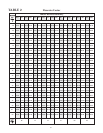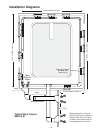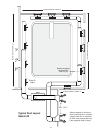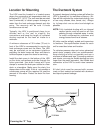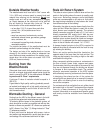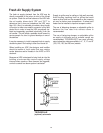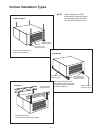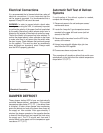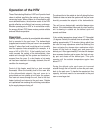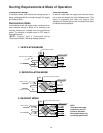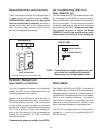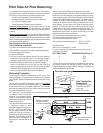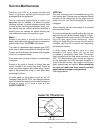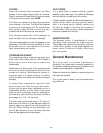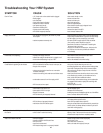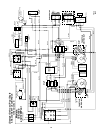
17
Operation of the HRV
These Recirculating Models of HRV's will provide fresh
clean air without sacrificing the savings of your energy
conserving home. When outdoor air is required for pool
room dehumidification, the aluminum cores of the HRV
provide effective and efficient heat recovery exchange.
Whether operating as an HRV or in recirculation mode,
the energy efficient PSC blower motors provide reliable
and cost effective operation.
Operation:
Humidity control is provided by an adjustable dehumidistat
that is mounted in the pool room. The dehumidistat
(supplied and mounted in the pool room in an accessible
location 5' above floor level) would be set to a humidity
level the operator finds acceptable (for example, in a
range of 45 to 55% R.H.). If the humidity level in the
room exceeds the setting of the dehumidistat, then
outside air is brought into the system and humid air is
removed from the room. If a duct heater or hot water
coil has been installed in the supply ductwork, this will
condition the incoming air.
Control of this heater would be by a duct mounted
thermostat. When the humidity level of the room falls
to the dehumidistat setpoint, the pool room air is
recirculated and no outside air will enter the system.
Pool room air moves through the unit, then to the duct
heater (optional) and returns to the pool room. Outside
air is prevented from entering the unit during recirculation
by the supply damper closing off.
The exhaust fan to the outside is shut off during this time.
Outside air does not enter the system until the pool room
humidity exceeds the setpoint of the dehumidistat.
The unit has an electronically controlled damper door
defrost. If the dehumidistat has made its circuit and the
unit is drawing in outside air, the defrost cycle will
operate as follows:
If the outside temperature drops below 27˚ Fahrenheit
(-3 degrees Celsius) the defrost timer is activated. After
waiting approximately 27.5 minutes (during which time
the core unit may experience some frost build-up) the
timer activates the damper door mechanism which
closes off the fresh air supply port and opens the
defrost port. After approximately 3 minutes the damper
door reverses direction and re-opens the fresh air sup-
ply port and closes off the defrost port. This cycle
repeats until the outside temperature again rises
above 27˚ F.
During the defrost cycle, pool room air is moved
outside through the unit as well as from the pool room,
back to the pool room. To handle the required air flow
capacity, two ducts need to be connected to the pool
room or one large duct.



